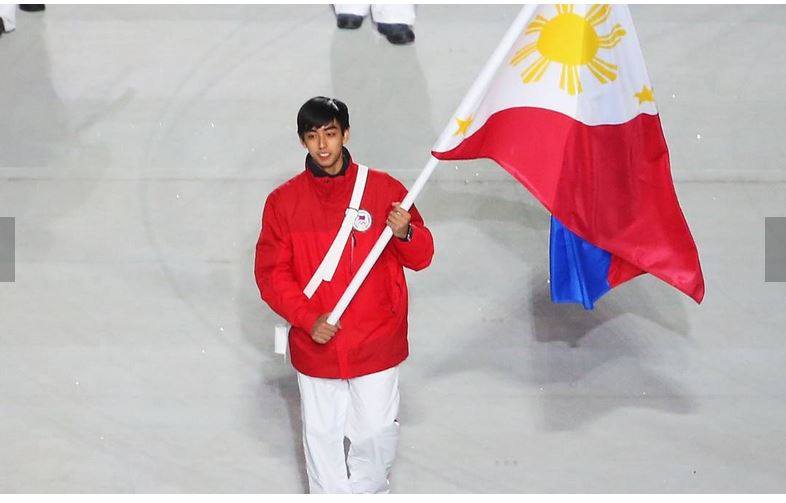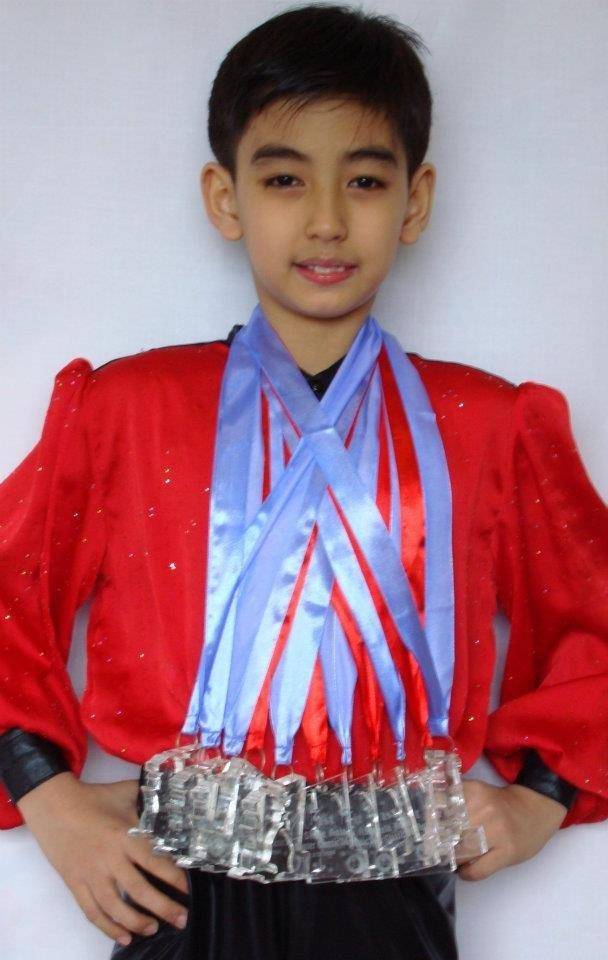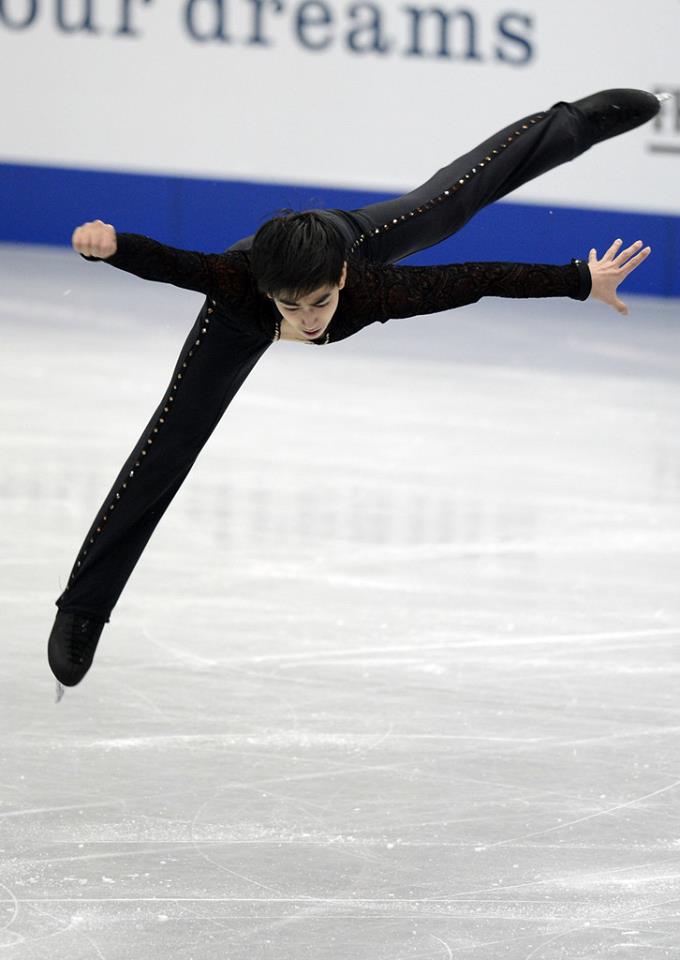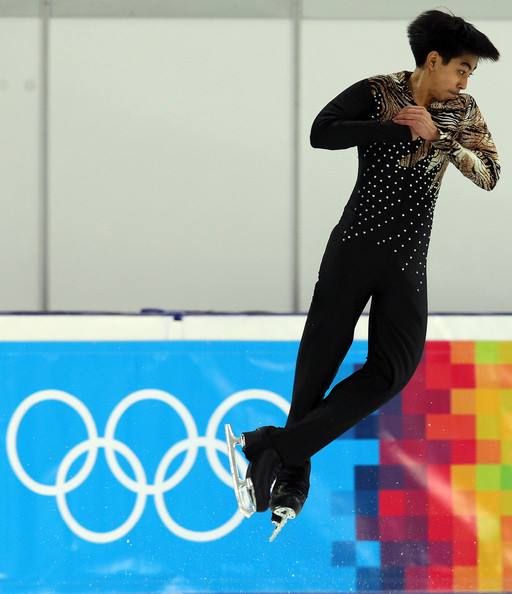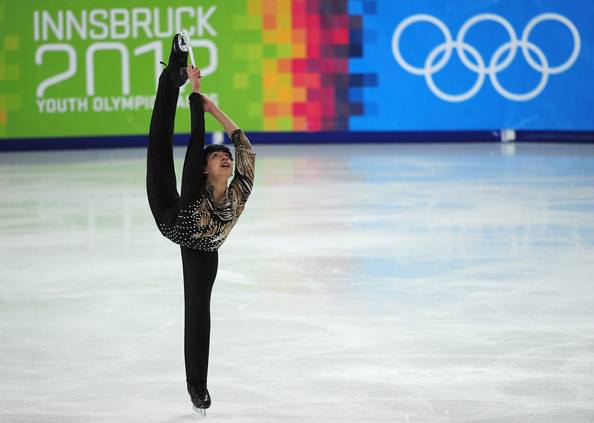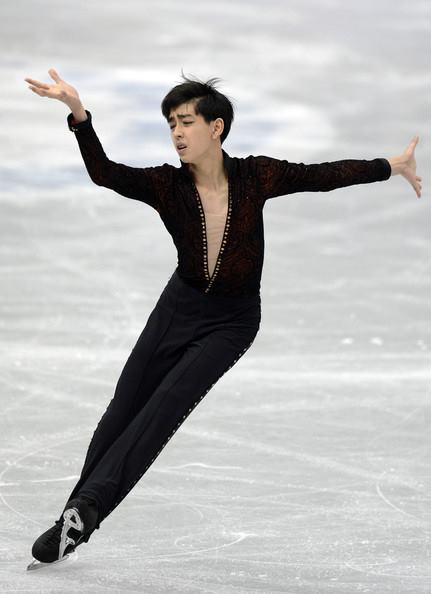Sports
Burning Passion for the Ice: Three reasons to love Michael Christian Martinez even more
Michael Christian Martinez has certain become a household name to many Filipinos with his history-making stint at the 2014 Sochi Winter Olympics.
As the sole delegate of a tropical country to the Winter Olympics, millions were curious how Martinez would fair in the games. The mere fact that he qualified to the Olympics is more than enough proof that he’s got what it takes, enough to shut up naysayers.
Martinez made history not only by being one of the youngest Olympians in the 22nd Winter Olympics, but also by being the lone delegate from Southeast Asia.
He surely made Filipinos proud and on February 23rd, he came back home to the Philippines where he received a heroes’ welcome. He also visited three SM malls as part of SM’s way to honor the Olympian who trained under their roof.
Here are just three of the many reasons to love Michael Christian Martinez.
He’s young, humble, and full of promise
Born on November 4, 1996, he began skating in 2005 at the age of 8.
He joined his first skating competition in 2009, the Tirnavia Edea Ice Cup held in Slovakia, where he got the first place in the advanced novice men’s division. He was only 13.
A year later, in 2010, he began training with John Nicks and Ilia Kulik. He had to move from Paranaque City to California in order to fulfill his training.
In 2011, he placed 7th and 8th in the junior novice category of the Youth Olympics and Junior Grand Prix, respectively.
He placed first in the 2012 Crystal Skate of Romania, an international figure skating competition, which featured disciplines in men’s singles, ladies’ singles, and ice dancing.
He started training under Viktor Kudriavtsev in 2013, and just a few months before he joined the Olympics, Michael competed in the Skate Helena (Pajovic) Cup where he skated to the first place.
In praise of his Olympic stint, former Summer Olympian Mikee Cojuanco-Jaworski said, “Michael worked very hard to be here. He’s here because he deserves to be here. He’s driven and passionate.”
“You don’t become an Olympian without having those traits. Hopefully he can continue his athletic dreams. It is my prayer that he can do both. He is still young and he has a lot in front of him,” Cojuanco-Jaworski continued in her television interview.
In all his competitions, Michael draws his strength from one source.
“Every competition I ask [God] for help and confidence,” he told Simone Orendain of the Catholic Register. “It really works!”
He can land a triple axel like nobody’s business
At the tender age of 17, Michael has already achieved way more than most people twice his age.
In his short program routine in Sochi, he scored 64.81— 33.31 technical, 31.50 component—after skating to “Bohemian Rhapsody.”
The commentators cannot help but commend Martinez’s flexibility and versatility, even throwing spins and the cantilever flawlessly.
“That was fantastic!” exclaimed one commentator during Martinez’s routine.
His score was enough to get him a slot to the final men’s Free Skate event.
Skating to the tune of Ernesto Lecuona’s “Malagueña,” Martinez earned a score of 119.44 for his free skate routine, which lasted four minutes and thirty seconds. Making his Sochi 2014 performance a total of 184.25.
Right at the start, the commentators commended Martinez for starting “like a rocket” with his nearly flawless jumps.
On the first half of his routine, Martinez had a slight fumble but immediately recovers and went on to perform the rest of his routine with passionate determination.
“He’s giving everything that he’s got… He’s fighting right to the finish,” one of the commentators mentioned as Martinez nears the end of his routine.
When Martinez finished his routine, one of the commentators described his performance as “impressive.”
He finished 19th out of a total of 30 skaters in the Sochi 2014 men’s figure skating event—making history for himself and the flag he held at the opening ceremonies.
As of February 3, 2014, he ranked 30th in the International Skating Union World Standings.
He fought the odds
When Michael was only two months old, he was diagnosed with asthmatic bronchitis. Due to his respiratory problems, he was often confined in the hospital.
He was lured to the graceful swiftness of the skaters who were enjoying themselves in a skating rink inside a mall.
Despite his bouts of asthmatic bronchitis, which prevented him from dabbling with sports, he decided to try out skating.
“Year after year my health keeps improving, so my mother fully supported me to continue skating. She said it’s better to spend the money on skating than in the hospital,” Michael said in an interview.
The more he skated, the more he honed his skills. And just like any athlete, he had more than his share of injuries. He’s torn several ligaments and obtained blade cuts more than once and endured painful recovery periods that kept him off the ice. Nonetheless, he always strapped his skates back on as soon as the doctor gives him the go signal.
Not only did he fight against physical challenges, but he—with the help of his family—also managed to get through the rather draining process of sending him to international competitions.
With the help of business magnate Manny V. Pangilinan, Michael was flown to Russia to participate in the Olympics.
There were reports of the family having to mortgage their home in Paranaque in order to finance his trip to Sochi, which his mom shared with the Catholic News Service. According to his mother Maria Teresa Martinez, they had no choice but to mortgage their house due to lack of financial support from the government.
“My house is mortgaged. It’s a crazy investment,” said Mrs. Martinez. “I don’t even think anyone at the president’s office knows there’s a Filipino skating in the Olympics.”
She detailed that they sent a letter to President Benigno Aquino III, asking for support, but got no response.
“For one reason or another,” she writes, “I believe my letters did not reach the President himself,” she said.
“Before there was no one to hold on to, only my mom but no one else,” Michael said in an interview with the Catholic Register. “So I’m holding on to God.”
However, Presidential Spokesperson Edwin Lacierda said that they did not receive the said letter. If they have, Malacanang would have certainly responded in any way, said Lacierda in a press conference.
The Philippine Sports Commission also said that they extended their help to the young Olympian, saying that they pledged to assist Michael when it comes to his daily allowance ($50 – $1,250 a day) for 24 days during Sochi 2014.
Gina Calaguas, executive secretary of the Philippine Olympic Committee, also said that she paid $7,200 to Michael’s coach Viktor Kudriavtsev for his coaching services.
On February 18th, Mrs. Martinez clarified her statement and expressed her gratitude to those who helped her son go to Sochi.
“We are truly thankful to Shoemart (SM), to the Philippine Skating Union, and to the Philippine Olympic Committee (POC) for their help,” she said.
According to Mrs. Martinez, “From SM we are getting about $111 a day. That is already a big help but it is still not enough since, when we train in the US, we spend at least $400 a day just to cover the coaches’ fees ($100-$150/hour) and $40 for ice rink time ($10-16/ hour). That amount is just not enough to prepare an athlete for the Olympics. And it takes many years of training to be in the Olympics, not just 10 months.”
After Michael’s successful and historical journey to Sochi, one of his principal sponsors Manny V. Pangilinan gave him a US $10,000 bonus for a job well done and for bringing pride and honor to the Philippines.
“My goal is to qualify again for the next Winter Olympics,” Michael said. “If I can get more support financially, I’m thinking about the next Olympics.”
Michael is a truly testament to the power and triumph of the human spirit against all odds.

